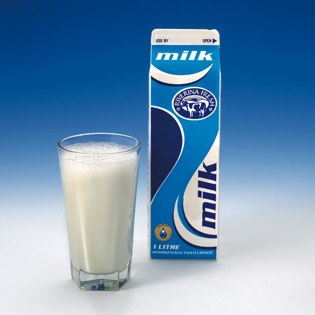
Which milk should people drink? That is mainly a question over what you look to get out of your milk. Are you trying to build strong bones for later on down the road? Are you trying to save money? Or are you trying to lose weight? Most of these questions have sort of clear-cut answers. If you want stronger bones for when you begin to age, drink the milk with the most calcium. If you want to save money, buy whatever milk is on sale or cheapest at the time. If your goal is to lose weight, buy the milk that has the least amount of fat and calories per serving. Or maybe the obvious answer to this last question may is not the correct one. New studies are coming out with data that is quite paradoxical. These studies suggest that whole milk, which leads standard milk choices in the amount of fat per serving and calories per serving, is the best option for keeping people slim and lean.

![]()
Multiple studies have shown a link between low-fat milk and obesity. One study, conducted by Dr. Mark DeBoer from The University of Virginia, measured 10,700 kids in the United States from the ages 2 to 4. The parents were asked questions regarding their child’s dairy consumption and questions relating to their BMI when the child was 2 and once again when they turned 4. The study found a correlation between weight gain and low-fat milks. A similar study conducted in 2005 by Brigham and Women’s Hospitals showed a relationship between skim milk consumption and weight gain in kids aged from 9 to 14. A third study, produced by the Scandinavian Journal of Primary Health Care, found that men aged between 40 and 60 years old who consumed whole milk and other dairy products high in fat, were less likely to become obese. Two surveys were given. One came in the beginning of the 12-year period, the other at the end of it. The questions asked had to do with what dairy products they consume, and their weight gain/lose over those 12 years. It was found that men who consumed non-fat or low-fat dairy products actually gained more weight over the 12-year period.
Since most studies done on this issue have been longitudinal, observational studies, it has been hard to link a direct cause to this phenomenon. Some believe milk with higher fat levels make people feel more full, so they are less likely to eat foods that could be higher in fat and calories. Another theory is that “There may be bioactive substances in the milk fat that may be altering our metabolism in a way that helps us utilize the fat and burn it for energy, rather than storing it in our bodies”. It could even be that the studies show no causal effect and the type of milk consumed has nothing to do with weight gain. Maybe it is reverse causation so people that are already fat feel they need to drink low-fat milk as a way to combat their obesity.
To try to eliminate so much doubt in the results obtained by these studies, an experiment would have to be done. Surveying people over a period of time may help find correlations, but it does not show any causal relationships. To do this, I would design a double blind experiment with 4 groups. One group would receive whole milk, one group would get 2%, another would get 1%, and the last group would receive skim milk. I would control for variables such as calorie intake of other foods, and exercise levels. After 24 weeks I would see if the overall groups’ BMI had increased, decreased, or stayed the same. From there I would have a better idea whether the fat content of the milk consumed had any effect on people’s weight.
